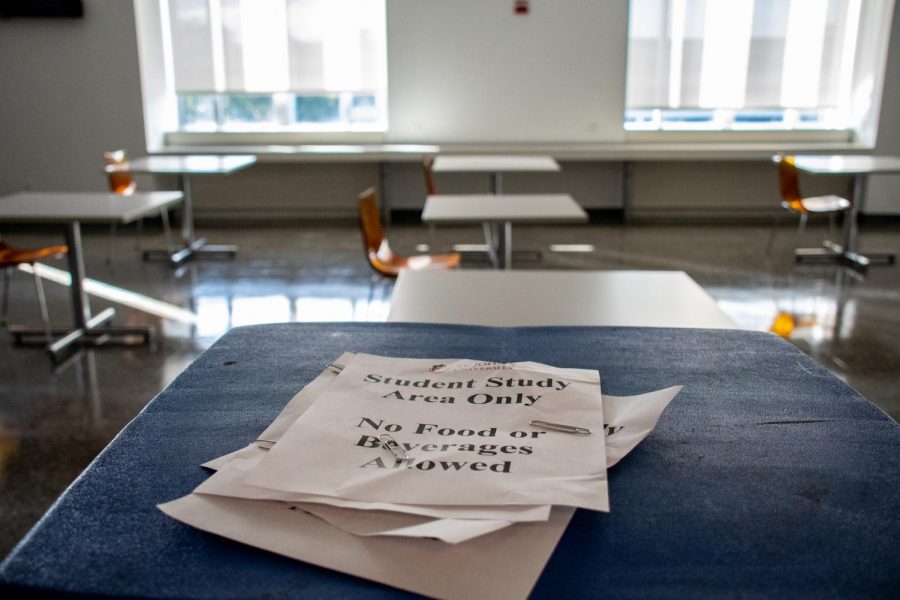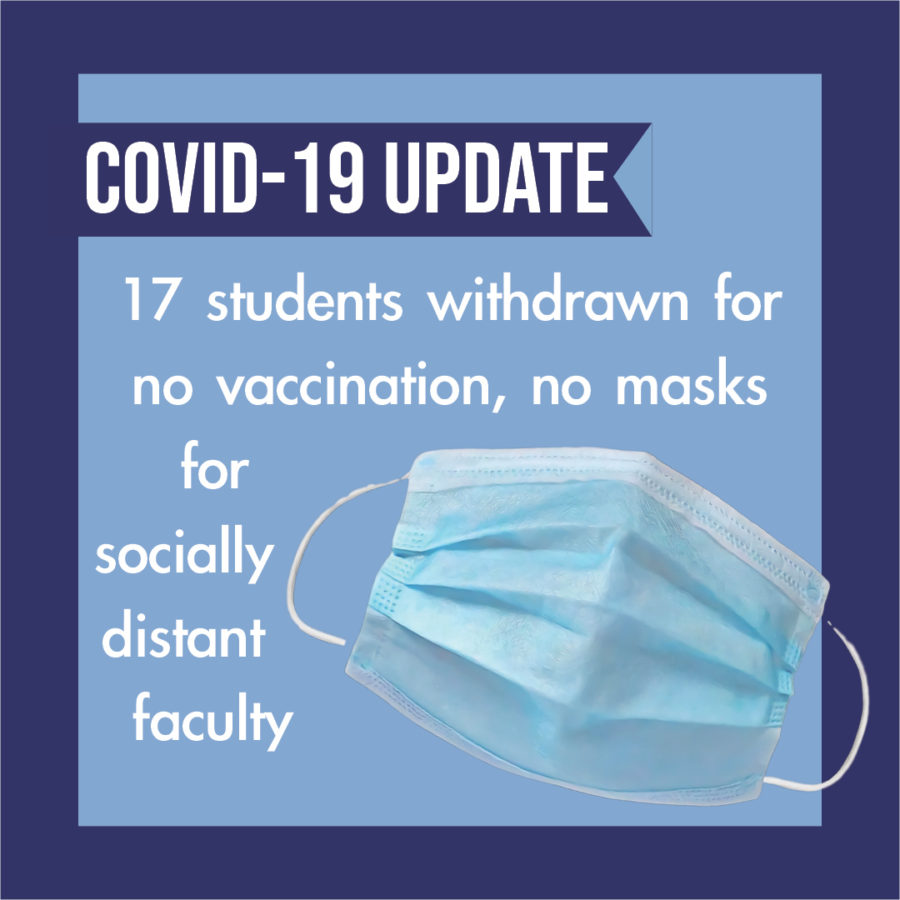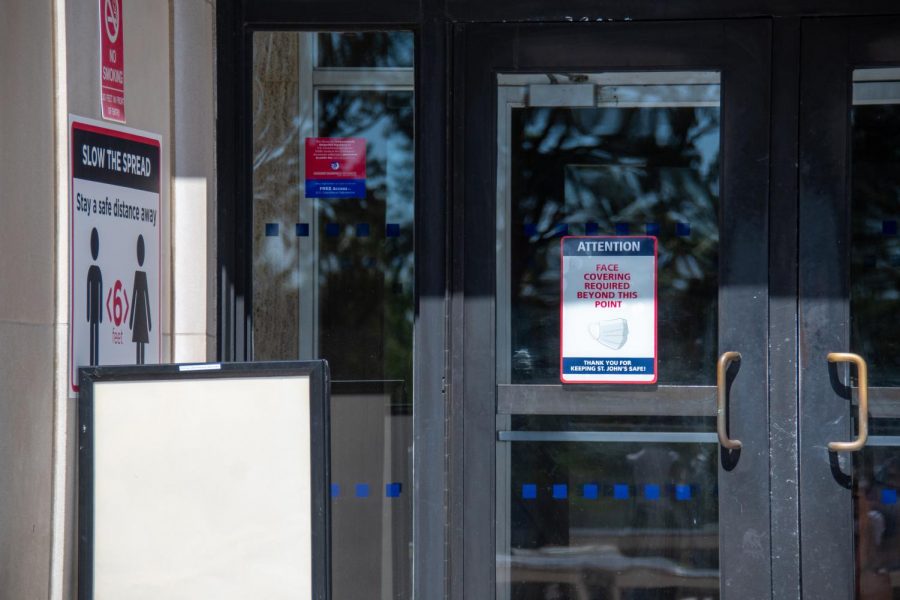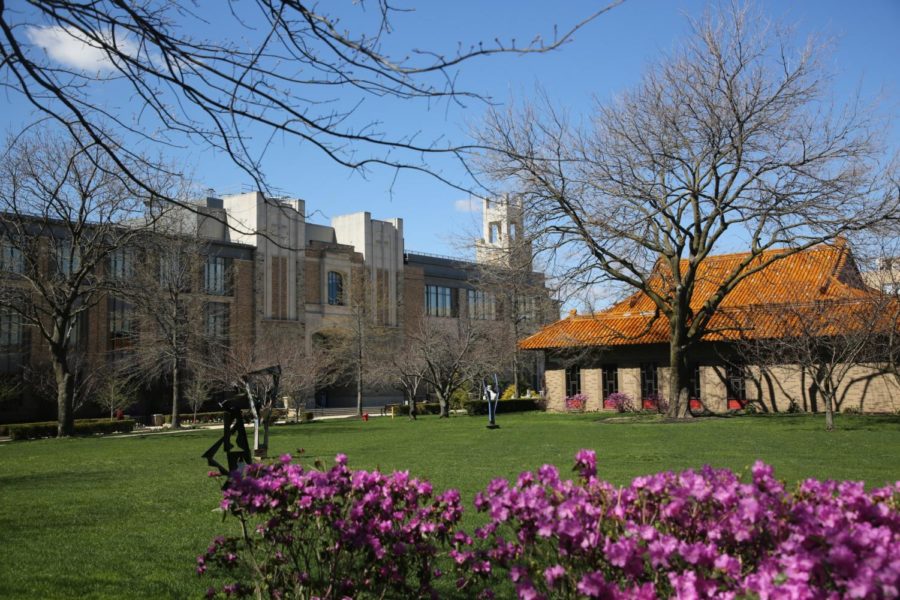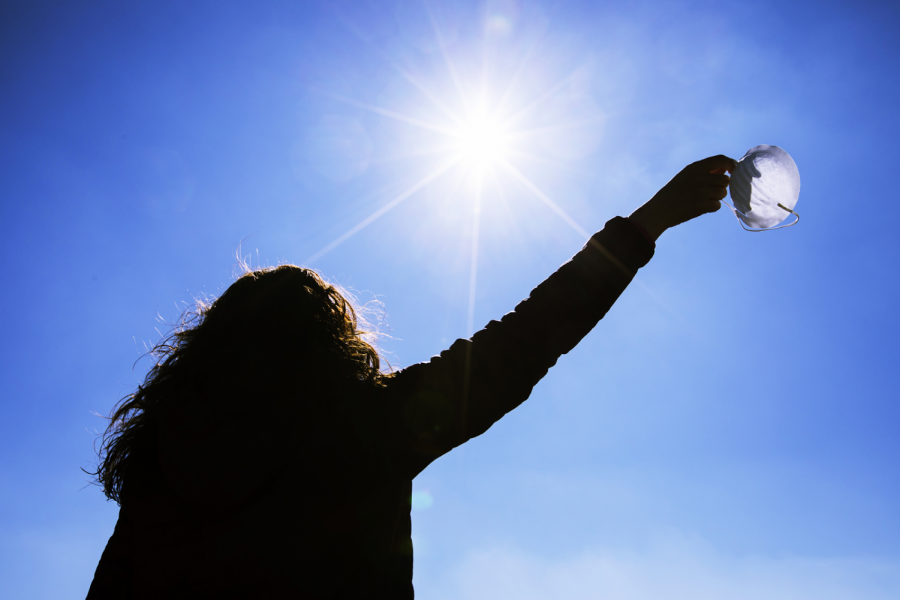Since the COVID-19 pandemic made its way across the world, extensive health protocols to protect ourselves and others from the spread of the virus, including mask wearing and social distancing have become the new normal, and St. John’s University students, faculty and staff are no exception.
Some may be sick of arguing how critical these actions are to curb the spread of the virus and help our safety — I can sympathize with this feeling. Wearing a mask, washing your hands properly and practicing social distancing all sound easy in theory, but evidently it is not for many people.
Last week, I went to campus four times and, each time, I witnessed students ignoring those COVID-19 protocols — groups of friends chatting without their mouths covered in DAC, four people in St. Augustine Hall were discussing a project in a study room that said the maximum number of people was three. Before the start of the semester, it was presumed that everyone would eventually start slacking off on these protocols.
The Office of Student Affairs told the Torch in an email that students are expected to follow the Johnnies Care Commitment at all times, including in spaces like DAC and in touchdown rooms across campus, and that “administrators have been making the rounds in the DAC to remind community members to engage in public health precautions. Reports received through the online reporting form are reviewed and investigated to the greatest extent possible.”
It’s emotionally and psychologically impossible to maintain the momentum of a sense of crisis for an indefinite period of time. No matter how much administrators and school officials urge us to be careful, we, as students, gradually lose our sense of urgency.
How can we sustain our awareness of the importance of these protocols? Mayor Bill de Blasio proposed temporarily closing all schools last Sunday because cases are rising in some New York City neighborhoods. I would suggest: “taking it personally.” College students have to stop acting like they are invincible — they are just as susceptible to this virus as anyone else.
I spent the entire summer back in my home country, Japan. Since I became very relaxed at home, I started to not care about the protocols as much as I did during the lockdown: I was going out more and hanging out with my friends. One day, one of my friends who I spent the most time with called me on her way to see the doctor and said she had lost her sense of taste for a few days. What she was describing has been considered as one of the most distinct symptoms of the coronavirus. While we waited for the result to arrive, I felt a terrible sense of anxiety. I pictured myself battling a high fever in a hospital bed and it caught me in endless waves of the worst possible scenarios, which terrified me. Four days later, it turned out my friend tested negative for COVID-19 — what a relief. This experience gave me a chance to realize that I had to follow social distancing rules not only for others, but also for myself. Ever since that moment, I have been diligent about following prevention practices, even upon my return to the United States.
I understand that motivation can dwindle once we start to lose sight of the purpose. People will sit around asking themselves: Why do we have to wear a mask? Why do we need to practice social distancing? What if I contract the virus? Consistently taking protocols will help alleviate stressors regarding the virus, protect others from the virus and, overall, put an end to the spread of COVID-19.


